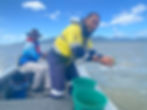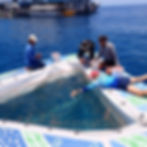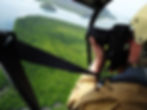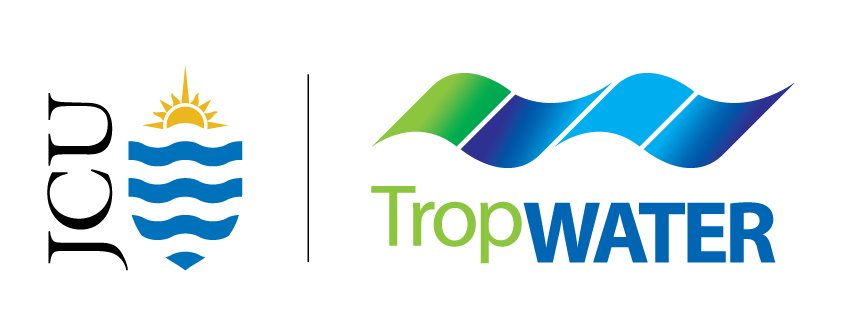
About us
We provide science based solutions to tackle critical environmental issues in tropical ecosystems.
TropWATER, James Cook University’s Centre for Tropical Water and Aquatic Ecosystem Research, brings together over 150 leading researchers. We provide science-based solutions to industries, communities, and governments for managing, protecting, and restoring tropical ecosystems.
Our mission
Our mission is to conduct influential research in water science, resource management, and aquatic ecology, focusing on sustainable use and preservation of water ecosystems. Our research covers water quality, fish and marine mammals, seagrass, coral reefs, mangroves, freshwater, estuarine and marine ecosystems, biosecurity and Indigenous training and capacity-building.
With a strong focus on tropical water systems in Australia and internationally, TropWATER uses the latest technologies and advanced research methods to addresses key issues, while balancing economic, social, and environmental needs.

James Cook University
TropWATER is an amalgamation of aquatic expertise from across James Cook University. It brings together over 150 research and supporting staff and over 100 postgraduate students into one cohesive group.
This provides a unique opportunity for multidisciplinary research activities that integrate JCU’s aquatic expertise, spanning freshwater, estuarine, and marine waters, with expertise from ecology, water hydrology, engineering, physics, oceanography, modelling, and resource economics.

Who we work with
Our scientists take pride in maintaining and developing strong relationships with all levels of communities, governments, industries, First Nations people, and non-government organisations.
Working together allows us to address environmental impacts of joint concern and achieve common goals to help create a more sustainable future in tropical environments.

Traditional Owners and Indigenous Rangers
Traditional Owners and Indigenous Rangers are key partners in many ongoing TropWATER projects. Our collaborations include mapping seagrass and coral reefs on sea Country, conducting Traditional Owner-led dugong surveys, monitoring mangrove shorelines, performing eDNA monitoring of invasive species, and participating in wetland protection initiatives, among many other activities.
Industries
Our work with industry spans tourism, agriculture, mining, and ports. Examples include identifying management practices that improve water quality leaving farms, co-designing robust ecological monitoring programs to help companies proactively reduce risks of negatively impacting aquatic environments, and providing management tools for environmental protection of seagrass habitats.
Landholders
We work with landholders, including cane farmers and graziers, to understand how, when, and where sediment and nutrients moves from the land into key catchments, reducing loads of fine sediment and nutrient reaching the Great Barrier Reef. This work helps growers adopt progressive practices to improve water quality. We also research the most effective methods to incentivise wetland and catchment restoration opportunities for landholders by leveraging ecosystem service markets.
Governments
Our work is instrumental in informing management and policymakers at local, state, and federal levels. We advise government on water quality conditions in the Great Barrier Reef, coastal restoration, blue carbon, dugong population dynamics, water security risks and seagrass health. We also advise defence management, providing critical insights for sustainable environmental management and policy development.
Conservation and non-government organisations
We actively collaborate with conservation and non-government organisations, including Greening Australia and Citizens of the Great Barrier Reef, to advance environmental goals. These partnerships focus on restoration projects, citizen science programs, and advocacy efforts to promote sustainable practices and protect aquatic ecosystems.
Other universities and research institutions
We collaborate with various universities and research institutions across all our research fields. This includes partnerships with experts in genetics, water quality, e-DNA, and drone-based morphometrics. Our collaborations extend to CSIRO, AIMS, UQ, CQU, CDU, numerous State Government Departments and the CRC for Northern Australia, on diverse environmental projects.

Explore our partnership bringing marine science advances to ports, findings of a landmark dugong report, our latest award achievements, and more.
Issue 4 2025

Explore how we're assessing recovery of grazing lands after flooding, leading eDNA science, using hovercraft for seagrass restoration, and more.
Issue 3 2025

Explore how we’re boosting seagrass recovery in the Cocos (Keeling) Islands, our new imagery tool for tracking coastal health, and more.
Issue 2 2025

Explore how mangroves recover after oil spills over the long-term, the impacts of Tropical Cyclone Jasper, and more.
Issue 1 2025

Explore how we’re finding ‘missing’ frogs, investigating the secret life of dugongs, finding safe passage for turtles, and more.
March 2022

Explore how we used eDNA to rediscover the iconic Irwin’s turtle, analysed satellite imagery to identify global wetland loss, and more.
June 2022

Explore how we discovered a mangrove dieback in the Gulf of Carpentaria, identified a boost in fish stocks after spearfishing restrictions, and more.
October 2022

Explore how we are boosting bushfoods, restoring seagrass, identifying a new mangrove species in India, and more.
December 2022

Explore our latest findings of a slow rise in seagrass, how we’re taking AI underwater, and more.
March 2023

Explore how we’re identifying sediment hotspots, restoring lost seagrass meadows, and more.
July 2023

Explore how we’re investigating water security challenges, surveying declines in dugong populations, and more.
December 2023

Explore how we’re locating inshore fish nurseries, scoping sites for blue carbon restoration, and more.
July 2024

Explore survey findings showing dugongs thriving in the far north, insights from the latest Scientific Consensus Statement, and more.
September 2024
Newsletters
Programs we host
TropWATER hosts several programs that support research, conservation, and management of aquatic ecosystems, with a focus on facilitating collaboration.

01
MangroveWatch
MangroveWatch is a not-for-profit organisation that brings together scientists, Traditional Owners, community volunteers, government, and industry to advance the research, education, and conservation of mangrove and tidal wetland environments. MangroveWatch is an environmental health monitoring program for shorelines, encouraging community awareness and local environmental stewardship.
02
Australasian Mangrove and Saltmarsh Network
The Australasian Mangrove and Saltmarsh Network was established in 2008 to connect individuals and organisations concerned about mangrove and saltmarsh intertidal wetland habitats in the region. The network promotes sustainable communication, collaboration, and community mentoring and participation in restoring and managing critically vulnerable intertidal wetlands.
03
Australian Coastal Restoration Network
The Australian Coastal Restoration Network connects marine and coastal restoration specialists, researchers, practitioners, and managers for collaboration and knowledge sharing to find solutions to challenges in coastal restoration and management. The Network provides networking opportunities and resources such as a database of coastal restoration projects across Australia and New Zealand.
04
Cairns-Port Douglas Reef Hub
The Cairns-Port Douglas Reef Hub is a collaborative network that connects individuals and organisations to share, learn, and collaborate on new approaches to care for reefs within the region. By strengthening collective capacity and driving solutions that benefit communities, the Hub aims to build more resilient coral reefs.


